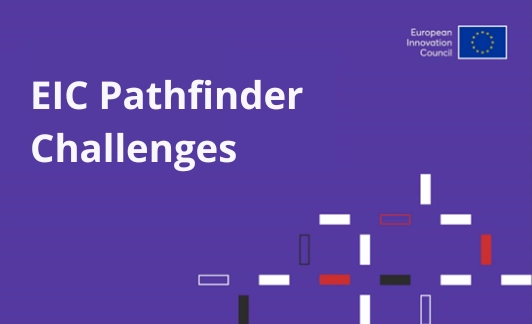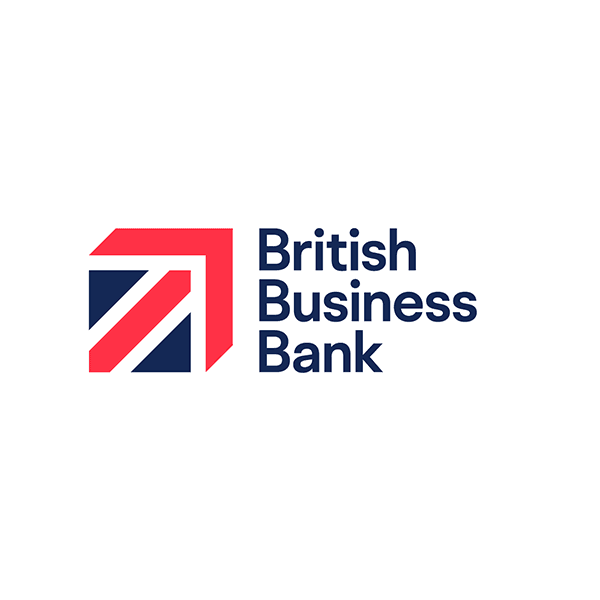€120M Available for EIC Pathfinder Challenges 2025
Exploring the EIC Pathfinder Challenges 2025
The European Innovation Council (EIC) Pathfinder programme is one of the EU’s most ambitious funding instruments, designed to support cutting-edge, high-risk research with the potential to lead to transformative technologies. For 2025, the Pathfinder Challenges call is open with a deadline of 29th October 2025, offering researchers, innovators and entrepreneurs the opportunity to pursue breakthrough ideas that could shape Europe’s technological and societal future.
What is EIC Pathfinder?
The EIC Pathfinder funds interdisciplinary consortia and pioneering teams to explore radically new technologies at early stages of development. Unlike incremental improvements, projects are expected to challenge the state-of-the-art and set the foundation for entirely new markets, industries and solutions to global challenges.
Projects typically begin at TRL 1–3 (basic principles and proof of concept) and are expected to reach TRL 4 (lab validation) by the end of the project.
Applicants can come from universities, research organisations, start-ups, SMEs, and spin-offs, either as individual entities (for Open calls) or as multi-partner consortia for Challenges.
What funding and benefits are available?
Successful Pathfinder Challenge applicants can receive:
- Grants of up to €4 million (depending on the challenge).
- Support to cover research costs, equipment, staff and collaboration.
- Business Acceleration Services, including coaching, mentoring, networking, and investor engagement.
- Access to Booster grants of up to €50,000 to explore commercialisation pathways.
- Fast-track entry routes to EIC Transition and EIC Accelerator funding, bridging the gap from lab to market.
- Close interaction with EIC Programme Managers, who help projects form synergies, align with EU missions, and build challenge-wide roadmaps.
This integrated support ensures that projects are not just funded but actively guided towards maximum impact.
The 2025 Pathfinder Challenges
This year, the Pathfinder programme is inviting proposals under four targeted challenges. Each focus on a domain where Europe aims to lead the next wave of innovation.
- Biotech for Climate Resilient Crops and Plant-Based Biomanufacturing
Agriculture provides 95% of human nutrients, yet climate change is placing enormous stress on global crop production. Rising temperatures, drought, salinity, flooding, and soil degradation all threaten food security.
This challenge calls for breakthrough solutions to enhance crop resilience and to develop alternative plant-based pathways for producing high-value ingredients. Projects must go beyond incremental breeding techniques to deliver energy-efficient, low-emission foods that boost biodiversity and nutrition.
Key objectives include:
- Increasing yields and stress tolerance under multiple climate stressors.
- Enhancing water and nutrient efficiency.
- Improving plant reproduction under harsh conditions.
- Leveraging multi-omics, AI, nanotechnology, and soil microbiome research to accelerate adaptation strategies.
- Producing crops with higher nutritional value or novel plant-derived ingredients.
Ultimately, the goal is to support Europe’s Farm to Fork Strategy, securing sustainable food supply chains while reducing dependency on imports.
- Generative AI Agents for Cancer Diagnosis and Treatment
Cancer remains one of Europe’s greatest health challenges. Medical imaging produces enormous amounts of data, but integrating and interpreting this across modalities (MRI, CT, PET, histopathology, genomics, etc.) remains difficult.
This challenge seeks to harness Generative AI (GenAI) and advanced machine learning to develop autonomous agents that provide clinicians with a holistic, end-to-end perspective of patient care.
Projects should focus on one of eight cancers (breast, cervical, ovarian, prostate, lung, brain, stomach or colorectal) and address both technological and clinical dimensions.
Key objectives include:
- Developing GenAI algorithms for integrating multimodal health data.
- Creating synthetic medical datasets to overcome data scarcity.
- Building interpretable AI systems that clinicians can trust.
- Designing personalised treatment pathways and improving diagnostic accuracy.
The expected impact is profound: better cancer outcomes, reduced costs, enhanced clinician support, and positioning Europe as a leader in AI-driven healthcare.
- Autonomous Robot Collectives for Construction
The construction industry is one of the least digitalised sectors, struggling with productivity gaps, safety issues, labour shortages, and rising sustainability demands. Current automation efforts often focus on upgrading heavy machinery, but this challenge envisions something far more radical: multi-robot collectives performing collaborative tasks in unstructured construction environments.
Projects should explore robot swarms and distributed control systems capable of handling site preparation, substructures, and superstructures in dynamic conditions, while integrating with electrified equipment.
Key objectives include:
- Demonstrating TRL 4 robotic building systems using modular construction elements.
- Developing mobile, collaborative robotic platforms capable of autonomous assembly and disassembly.
- Advancing human-robot collaboration for safe on-site coexistence.
The expected impacts include higher productivity, safer workplaces, reduced emissions, and progress towards affordable housing and sustainable infrastructure.
- Waste-to-Value Devices: Circular Fuels, Chemicals and Materials
Despite progress in renewable energy, fossil fuels still dominate as feedstocks for chemicals and materials. This challenge aims to develop next-generation waste-to-value devices that transform problematic waste streams (plastics, flue gases, wastewater, desalination brines) into valuable fuels, chemicals, and raw materials.
Technologies of interest include:
- Solar reforming and synthetic biology devices.
- Integrated capture and conversion technologies.
- Brine mining for critical raw materials.
- Microbial and photocatalytic remediation processes.
Projects must deliver TRL 4 integrated devices within 3–4 years, ensuring that outputs are higher-value than the original waste and fully sustainable.
The challenge is aligned with the EU Green Deal, Fit for 55, and Circular Economy Action Plan, aiming to reduce resource dependency and support localised, renewable supply chains.
Why Apply?
The EIC Pathfinder Challenges are not just research projects, they are opportunities to shape the future of Europe’s economy and society.
From resilient food systems and AI-driven healthcare, to robotic construction and circular chemistry, the 2025 challenges address some of the world’s most pressing problems. For ambitious innovators, this is a unique chance to secure substantial funding, collaborate across disciplines, and take part in building Europe’s next wave of transformative technologies.
👉 For a FREE consultation to discuss your project idea, contact RedKnight today.
Innovate UK launches next round of innovation loans
Innovate UK has announced its latest round of the Innovation Loan competition which offers a flexible, repayable funding option tailored for late-stage innovation projects. This competition is designed to support ambitious, growth‑oriented UK businesses looking to move groundbreaking products, services or models from development into commercial reality. Here’s everything you need to know about this opportunity presented in an accessible and engaging format.
Summary
Round 23 provides funding to support SMEs through both research and early market readiness:
- Loans ranging from £100,000 to £5,000,000, allowing full coverage of eligible project costs.
- Extended project duration of up to five years, with a maximum total loan term allowed of seven years (including repayment and other phases).
- Generous repayment structure featuring interest‑only draws at a rate of 3.7% per annum during the project period, with deferred interest of an additional 3.7% accumulating and becoming payable during the repayment period at 7.4% per annum.
- Allows for extensive pre‑commercialisation costs, such as tooling, market testing, production scale‑up, capital equipment, and up to 20% working capital support, especially welcome to projects making the leap to market.
Eligibility Criteria
To qualify for Round 22, applicants must meet the following requirements:
- Be a UK‑registered micro, small or medium‑sized enterprise (SME).
- Carry out the project in the UK and plan to exploit its results within the UK.
- Demonstrate financial suitability for a loan, including ability to repay and justification for public funding.
- Be a single business; collaboration is not permitted (though subcontracting is allowed with proper justification).
- Innovate UK will conduct a credit evaluation and assess whether your business can fulfil the loan obligations.
- The competition encourages applications from businesses that are underrepresented, including those in regions outside major innovation clusters, women‑led teams, ethnic minority groups, those with non‑traditional educational backgrounds and people with disabilities.
Scope of Funded Projects
The Innovation Loan competition targets late-stage innovation efforts intended to create significant economic and societal benefits:
- Projects should deliver innovative products, services or processes, substantially ahead of what currently exists, or demonstrate innovative business models.
- Must align with Innovate UK’s “future economy” themes, such as net zero, health and wellbeing, next generation digital technologies, advanced materials, AI, robotics, quantum, and more.
- Applicants must clearly show:
- A compelling, innovative concept.
- A sound business plan evidencing market need and strong commercial potential.
- A capable team to drive the project to completion.
- Risk awareness with mitigation plans.
- Robust financials that represent good value and provide a repayment strategy.
- Why the project cannot be self‑funded or supported through private or other public funding.
- The inclusion of a pre‑commercialisation workstream is encouraged to cover prototyping, testing, tooling, inventory generation, and up to 20 percent working capital, enabling smoother transition to market.
Key Dates and Timeline
Here are the important milestones for Round 23:
- Competition opened on 4th September 2025.
- Pre‑application briefing webinar to be held on 17th September 2025, with recordings and slides available to help applicants understand the process and changes.
- Financial deep‑dive workshops on 24th September, 29th September, and 9th October 2025, focusing on revenue forecasts, working capital planning and capitalisation—recommend participation for applicants serious about their financial submission.
Why You Should Consider Applying
Innovate UK’s Innovation Loan Round 23 offers a compelling package for SMEs advancing innovation to commercial deployment:
- Access to sizeable capital (up to £5 million) without equity dilution or personal guarantees; Innovate UK takes a secured debenture, not personal assets.
- Interest‑only drawdowns with deferred interest create a cash flow advantage during development and validation phases, helping you preserve runway.
- Funding covers both R&D and pre‑commercial activities, making it easier to prototype, validate, tool up and prepare for launch.
- Offers an inclusive approach, encouraging applications from diverse and underrepresented founders and regions.
- Engaging briefing sessions and workshops support applicants in strengthening their submissions and understanding evaluation criteria.
Why Apply?
Innovate UK’s Innovation Loans Round 23 is a strategic opportunity for UK SMEs with mature, market-ready innovations. The combination of generous loan sizes, flexible terms, inclusive eligibility, and practical financial support makes this round especially attractive.
If your business is driving late-stage R&D with a clear route to commercial success and societal benefit, this may be the funding pathway you need to cross the gap to market.
What Next?
For a FREE consultation to discuss your project, contact RedKnight today.
£7.8m Farming Innovation Programme for R&D Projects
The Department for Environment, Food and Rural Affairs (Defra), in partnership with Innovate UK, has launched an exciting new funding initiative: the Farming Innovation Programme: Small R&D Partnership Projects Round 4.
This competition invites UK businesses to apply for grants from a budget of up to £7.8 million. The overarching goals are to grow productivity, strengthen sustainability, support resilience, and accelerate progress to net zero in agriculture. Collaboration is front and centre, with applicants encouraged to engage with farmers, growers or foresters and the UK research community throughout their innovation process. There is also a strong focus on adoption, with knowledge exchange emphasised across the wider agricultural sector. Importantly, each project must clearly demonstrate tangible benefits for farmers, growers or foresters located in England.
Eligibility Criteria
To ensure your project qualifies for consideration, here are the key eligibility requirements:
• Project funding must be between £1 million and £3 million.
• Duration must not exceed 30 months, with a required start by 1st July 2026 and end by 31st December 2028.
• All project work must be conducted within the UK.
• The intent to exploit results in England is mandatory.
• The lead organisation must be a UK registered business of any size and must collaborate with at least one research claiming SME.
• Community Interest Companies and charities are not permitted to lead applications.
• Eligible collaborators may include businesses, academic institutions, charities, public sector or research and technology organisations, as long as consortium structure is sound and no single partner accounts for more than 70% of project costs.
• Non UK partners are allowed if they bring their own funding and their costs count towards the total project expenditure.
Scope of Funded Projects
The competition is open to proposals that address significant challenges or opportunities in key agricultural subsectors:
• Farmed animals
• Plants
• Novel food production systems
• Bioeconomy and agroforestry.
Projects must notably benefit farmers, growers or foresters in England through improved productivity, sustainability, environmental impact, resilience, or net zero progression.
It is also important to note projects that are outside the scope of this competition:
• Equine specific projects.
• Wild caught fisheries, aquaculture for fish or seafood for human consumption.
• Cellular or acellular fermentation for bacteria, yeast or fungi aimed at human consumption.
• Crops or plants for medicinal or pharmaceutical use.
• Projects reliant on export performance or domestic input usage as conditions of funding.
Key Dates and Process
Here are the critical milestones for this competition:
• Opening of competition: Monday 15th September 2025.
• Closure deadline: Wednesday 5th November 2025 at 11:00am.
• Online Q&A and consortia building event: 18th September 2025, between 9am and 11am (registration required).
• Invitations to interviews anticipated on 17th December 2025.
• Interview panels scheduled between 10th February and 20th February 2026.
• Successful applicants to be notified by 11th March 2026.
• Projects must start no later than 1st July 2026.
Additional Insights
This competition adopts a two stage assessment process:
1. Initial eligibility and merit-based review.
2. Invitation to interview for shortlisted proposals.
Applicants are reminded that this is a competitive process. Even strong proposals may not receive funding due to limited resources. Based on prior experience, the success rate is estimated at about 15%.
Innovate UK and Defra also emphasise accessibility, inclusion and outreach. They encourage applicants to contact them at least 15 working days before the closing deadline if adjustments or support are needed.
Why Apply?
This competition presents a vibrant opportunity for UK businesses and research partners to apply their creativity and expertise toward meaningful and impactful agricultural innovations. Through collaboration, awardees will contribute to technological advancements, support farmers in navigating today’s challenges, and catalyse the journey toward a more sustainable, resilient, and productive agricultural sector.
What Next?
For a FREE consultation to discuss your project, contact RedKnight today.
Innovate UK to streamline funding pathway
Innovate UK Aims to Improve Path to Funding
On 15th August 2025, Innovate UK unveiled a set of four targeted improvements aimed at reshaping how businesses access innovation funding. These enhancements are rooted in feedback from applicants and partners and are specifically crafted to make the process more streamlined, equitable, and inclusive.
A Simpler Application Process
Applying for funding has long been seen as a hurdle, especially for first-time applicants. Innovate UK is addressing this by redesigning its application forms using a tested framework. The goal is to focus on essential information, like how an idea addresses a specific need, while removing unnecessary administrative burdens. These revamped forms are intended to be more intuitive and efficient for both newcomers and experienced applicants.
A Faster Route to Funding
Speed is critical for innovation. In response, Innovate UK is working towards delivering a Grant Offer Letter within 90 days of the competition closing. This shorter turnaround is designed to help businesses plan effectively, move forward with confidence, and benefit from more agile programme delivery. If they can achieve this target, it will be a welcomed improvement on current practices, where the result alone can take between 4 to 8 weeks, before even starting the grant agreement preparation phase.
A Broader, More Diverse Assessor Pool
To boost fairness and improve decision quality, Innovate UK is expanding its assessor base. This means involving a wider range of technical and commercial experts from across the UK. A more diverse panel, the agency believes, helps mitigate bias and ensures that excellent ideas are recognised regardless of origin. Whilst this is a positive step forward, one of the biggest frustrations with assessor feedback is the contrasting viewpoints which leave applicants not knowing which to believe. Adopting a consensus meeting approach, similar to the European Commission (EC) could be one way to addressing this challenge.
Support Adapted to Project Needs
Recognising that one size doesn’t fit all, Innovate UK is shifting to a model where monitoring and support are tailored to individual project requirements. Some projects will benefit from hands-on guidance in key areas, while others will have greater autonomy. This flexible approach aims to enhance outcomes and deliver better value for public investment.
Enhancing Access and Supporting Underserved Applicants
A core aim of these changes is to make funding more inclusive, particularly for first-time applicants and those from underrepresented groups in innovation. To facilitate this, Innovate UK has introduced supporting tools to guide applicants through the improved process. While the announcement doesn't spell out every detail of these tools, it’s clear that resources have been made available to help applicants navigate the new procedures.
Why It Matters?
- Clarity and Speed: Simplified forms cut through complexity, saving time and reducing frustration.
- Decision Certainty: A 90-day turnaround on grant letters brings reliability and momentum to planning.
- Fair Evaluation: A diversified assessor panel boosts fairness and elevates decision quality.
- Adaptive Support: Tailored oversight ensures projects receive the right level of guidance to deliver effectively.
These updates are designed to improve the user experience and the inclusivity and responsiveness of Innovate UK’s funding system. The organisation emphasises that the improvements are grounded in direct feedback, signalling a more collaborative and adaptive approach going forward.
With this announcement, Innovate UK is taking concrete steps to lower barriers, speed up process, and level the playing field. The redesigned applications, faster decisions, expanded assessor pool, and bespoke support show a clear commitment to making innovation funding more user-friendly and impactful. As these changes roll out of the coming months, they promise to make the system more transparent and accessible for innovators across the UK.
Fully Funded Horizon Europe Brokerage Visits
UK organisations eyeing Horizon Europe collaboration have a significant opportunity through the Horizon Europe Brokerage Visits 2025/2026, run by Innovate UK Business Connect in partnership with DSIT, the UK Science & Technology Network, and National Contact Points. These fully funded visits (open to up to 15 UK-registered bodies - SMEs, universities, corporates, RTOs) will take place between September 2025 and March 2026 across Germany, Spain, France, the Netherlands, and Belgium. Each visit targets specific Horizon Europe Cluster 4 topics (Digital, Industry & Space) aligned with planned work programme calls for 2026/27, offering practical support through matchmaking, pitch sessions, innovation workshops, and proposal guidance.
Below are all confirmed brokerage events for the 2025/26 series:
- Germany: 23–25 September 2025. Focus: Advanced Materials, Raw Materials & Chemicals
- Spain: 1–3 October 2025. Focus: Fast‑tracking Circularity
- Spain: 20–22 October 2025. Focus: Sustainable Agriculture
- France: 21–23 October 2025. Focus: Smart Energy Systems
- Netherlands: 17–19 November 2025. Focus: Sustainable Agriculture
- Netherlands: 1–4 December 2025. Focus: Innovative Advanced Materials/Technologies & AI for Manufacturing
- Belgium: 10–12 February 2026. Focus: Automotive Mobility.
Together, these visits present valuable engagements for UK delegates to meet European collaborators in sector-aligned pitches, roundtables, and workshops. Each event supports deep dive into forthcoming Horizon Europe call themes, for example advanced materials, circularity, smart systems, sustainable agriculture, AI in manufacturing, and mobility systems.
Key logistical and eligibility information:
- Applications open: 25th July 2025 at 12:00 pm (UK time).
- Each event typically has its own application deadline (e.g. Germany: 8th August 2025; notification 20th August).
- Innovate UK funds flights, accommodation, in-country travel, and daily subsistence for one representative per organisation.
- Eligibility: UK-registered SMEs, corporates, universities, RTOs, and Catapult Network members.
These visits build on earlier 2025 programmes that sent UK delegations to Italy, Spain, Germany, the Czech Republic, and Poland, focusing on energy tech, hydrogen, smart manufacturing, cybersecurity and resilience. The experience of those earlier rounds demonstrated tangible outcomes: early-stage project ideas, new cross-border partnerships, and groundwork for full Horizon Europe consortia.
Why participate?
Key benefits:
- Fully funded in‑market visit for one delegate: travel, lodging, subsistence.
- Sector-focused matchmaking with European peers aligned to your R&I themes.
- Professional guidance from UK NCPs, STN, and embassy networks on bid preparation and consortia formation.
- Pitch opportunities to showcase your innovation and gather collaborators.
- Strategic foresight into Horizon Europe 2026/27 calls aligning with Cluster 4 priorities.
If you're working in advanced materials, circular economy, energy systems, agricultural innovation, AI-enhanced manufacturing or mobility, these brokerage visits could be instrumental in starting or strengthening Horizon Europe projects.
Applications opened on the 25th July 2025 for the first events, followed by additional country-specific deadlines. Preparing a strong, focused innovation pitch and aligning your sector interests to each country’s theme will greatly enhance your application.
To express your interest, click here.
DRIVE35 Funding to Boost Zero-Emission Vehicle Innovation
Three new competitions have launched under the UK’s DRIVE35 innovation programme, providing £85 million in grant funding to accelerate the decarbonisation of commercial road transport. These opportunities, opened on 15th July 2025, are designed to support innovations in zero-emission vehicles and supporting systems, spanning heavy goods transport, last-mile delivery, and retrofit solutions. The competitions are part of the UK’s broader strategy to achieve net-zero emissions in transport and foster green industrial growth through real-world demonstrations and technology deployment.
The first of the three competitions focuses on heavy and long-haul commercial vehicles. It aims to support the development and demonstration of battery-electric trucks, hydrogen fuel cell technologies, and associated refuelling or charging infrastructure. This funding call is intended for ambitious projects that can help de-risk the adoption of zero-emission heavy vehicles at scale and facilitate integration into existing fleet and logistics operations. Projects must address both the vehicle technology and its supporting ecosystem—this includes grid connections, refuelling depots, and digital platforms to optimise use. The competition is open to UK-registered organisations, including large manufacturers, fleet operators, infrastructure developers, and research institutions. Collaborative projects are strongly encouraged to ensure system-level innovation. Funding levels typically cover between 40% and 70% of project costs, depending on business size and project type. Projects are expected to last between 18 and 36 months, with proposals due in the autumn. This competition directly aligns with the UK Government’s goal to end the sale of new non-zero emission HGVs by 2040 and develop a robust domestic supply chain for clean freight technologies.
The second competition targets the urban delivery and last-mile logistics sector, supporting the transition from diesel-powered vans to electric and other zero-emission vehicles. It places emphasis on practical, deployable innovations such as depot electrification, battery-as-a-service business models, and digital tools for route optimisation. Projects might involve electrifying an urban delivery fleet, integrating smart charging systems at depots, or trialling new logistics platforms designed to reduce vehicle mileage and emissions. This competition is particularly well-suited to SMEs, start-ups, and mid-sized operators working in fleet services, vehicle conversion, logistics software, or depot infrastructure. Funding is available for feasibility studies, industrial research, and experimental development, typically covering 45% to 70% of costs. Proposals must demonstrate clear potential for emissions reduction, commercial viability, and operational readiness. Like the other competitions, it opened on 15 July 2025, with deadlines expected in the early autumn and project durations ranging from 12 to 30 months. This call supports the UK’s clean cities agenda, tackling both congestion and air quality by promoting scalable, zero-emission alternatives in urban logistics.
The third competition focuses on specialist vehicle retrofit and conversion solutions, aimed at transforming existing diesel-powered vehicles for zero-emission use. This includes sectors such as construction, municipal services, events and utility vehicles, where bespoke or legacy vehicles are still widely used. It also covers the development of retrofit kits, hybrid systems, and conversion platforms to repurpose diesel vehicles into clean alternatives. By investing in this area, the competition supports not only emissions reductions but also cost-effective asset reuse and the development of a UK retrofit supply chain. Projects should involve a combination of retrofit specialists, vehicle operators, training providers, and possibly certification bodies. These projects are eligible for funding that typically covers between 45% and 65% of costs, depending on size and scope. Demonstration of the solution in real-world settings is essential, alongside evaluation of performance, emissions impact, and cost effectiveness. The competition is particularly attractive for retrofit SMEs and solution providers looking to prove the viability and safety of their technologies at fleet scale. Like the other DRIVE35 competitions, it opened on 15 July 2025 with expected deadlines in the autumn and projects running up to two years in length.
Collectively, these three competitions represent a significant strategic investment in clean mobility. By targeting three critical areas—heavy freight, urban delivery, and retrofits—they offer a comprehensive approach to transforming road transport across different use cases and vehicle types. Each competition requires an integrated systems approach, meaning applicants must consider not just vehicle technology, but also how it interfaces with infrastructure, logistics platforms, energy systems, and users. This encourages innovation that is scalable, commercially viable, and aligned with wider net-zero goals.
The timing of these competitions is also important. With the UK Government pushing hard on its transport decarbonisation plan and legislating to phase out internal combustion engine vehicles, industry now has both the regulatory certainty and financial backing needed to take bold steps toward zero-emission operations. The DRIVE35 funding allows businesses to demonstrate their technologies under real operating conditions, gather performance and user data, and refine their business models, all while reducing risk and building market credibility.
Each competition is tailored to different kinds of applicants. Larger OEMs and logistics companies will likely find the heavy-duty vehicle competition most relevant, whereas SMEs, start-ups, and digital innovators may be best suited to the last-mile delivery challenge. Retrofit specialists, vocational vehicle operators, and sustainability-focused service providers will find the retrofit competition a unique opportunity to prove and scale their solutions. What they all share, however, is an opportunity to secure substantial co-funding and build partnerships that can lead to long-term commercial success and environmental impact.
To succeed in these competitions, applicants should begin preparing early. Building a strong consortium is essential, projects will be judged not only on technical merit but also on their commercial potential, alignment with user needs, and ability to deliver measurable outcomes. Applicants should also engage with stakeholders such as fleet users, energy providers, local authorities, and regional innovation hubs to maximise their chances of impact and adoption.
As the UK seeks to lead in the global race to zero-emission transport, these DRIVE35 competitions offer a timely boost for innovators, manufacturers, and service providers alike. They will help to unlock investment, support the creation of green jobs, and demonstrate the viability of clean commercial vehicle solutions across the UK. With the deadline fast approaching, now is the time for ambitious businesses to act.
Accelerating Defence Innovation with £400M Investment
On 1st July 2025, the UK Ministry of Defence (MOD) launched UK Defence Innovation (UKDI), a landmark consolidation of the UK’s defence innovation ecosystem. This newly formed body unites the Defence and Security Accelerator (DASA), the Defence Innovation Unit (DIU), the DE&S Future Capability Innovation (FCI) team, and various Command Innovation Hubs under one coordinated structure. The aim is clear: to streamline innovation, accelerate delivery of cutting-edge technologies, and provide the Armed Forces with a decisive technological advantage at a pace akin to wartime operations.
The creation of UKDI was catalysed by findings from the MOD’s Strategic Defence Review, which called for faster and more coherent innovation delivery mechanisms. The government’s broader “Plan for Change” further supports this move, prioritising dual-use technologies that can benefit both military and civilian sectors. UKDI will operate with a ring-fenced annual budget of at least £400 million, positioning it as a major instrument of growth and security in the UK economy. With defence already supporting over 430,000 jobs across the country, UKDI is expected to further stimulate high-value employment in sectors such as advanced manufacturing, cyber, and materials science.
At its core, UKDI is designed to overcome the fragmentation that has historically hampered defence innovation. By bringing DASA, DIU, and other MOD innovation bodies under a single operating model, the government is eliminating duplication and building a more coherent pipeline from idea to field deployment. This new model aims to give innovators, especially SMEs and academic spinouts, a much clearer path to engage with the MOD, secure funding, develop prototypes, and scale technologies into frontline capabilities.
One of the most transformative aspects of UKDI is its operational approach, designed to function at a "wartime pace." This means embracing alternative contracting models, agile development cycles, and rapid decision-making to deliver technologies to the front line as quickly as possible. The integration of various innovation units also creates an end-to-end pathway, from early-stage ideation through to scalable procurement and deployment, something that was lacking in the previous, more siloed structure.
UKDI will also enhance coordination across government, forging stronger ties with departments such as the Department for Business and Trade (DBT), the Department for Science, Innovation and Technology (DSIT), and UK Research and Innovation (UKRI). These links are crucial to ensure that defence innovation aligns with broader national R&D priorities and supports the UK’s national security objectives.
Among the first initiatives to launch under UKDI is the formation of a Rapid Innovation Team (RIT), tasked with responding quickly to urgent operational needs. This team will focus on sourcing and deploying commercial-off-the-shelf and dual-use technologies that can be fielded with minimal adaptation. Additionally, Regional Engagement Teams will be deployed across the UK to strengthen relationships with local innovators, including startups and academic institutions. These teams will provide guidance on business development, IP strategy, and navigating MOD procurement processes.
UKDI is being launched with an annual budget commitment of £400 million and a transition period of 12 months, with the body expected to reach full operating capability by July 2026. Over the coming year, existing structures such as DASA and DIU will be integrated into UKDI’s centralised framework, with clear communication and change management processes to support stakeholders during this transition.
This structural reform coincides with a broader transformation within the MOD. Notably, UK Strategic Command will be renamed Cyber and Specialist Operations Command (CSOC) as of 1st September 2025. This rebranding reflects a sharpened focus on cyber operations, intelligence, special forces, deployed medical capabilities, and command-and-control functions. The change responds to a growing cyber threat landscape, with UK networks having endured over 90,000 sub-threshold cyberattacks in just the past two years.
Senior defence leaders have expressed strong support for UKDI. Defence Secretary John Healey MP emphasised that "defence is only as strong as the industry that stands behind it," positioning UKDI as a crucial lever for modernising military capability and strengthening the defence-industrial base. General Sir Jim Hockenhull, who will lead CSOC, noted that the renaming and restructuring are more than cosmetic, they reflect the MOD’s renewed commitment to cutting-edge operations across physical and digital battlefields.
Industry experts have also welcomed UKDI’s formation. Thought leaders such as Stu Olden, Paul Thorpe, and Harry Ruffell have highlighted the potential for UKDI to simplify engagement with defence buyers, improve procurement agility, and create new opportunities for startups and scaleups. Legal and business advisors have praised the model’s promise to reduce administrative burden and establish faster, more transparent routes from concept to contract.
Strategically, UKDI positions the UK to remain competitive in an increasingly contested global technology race. NATO allies are investing heavily in AI, autonomy, cyber, and space capabilities, and UKDI provides a platform for the UK to keep pace. It also aims to promote spillover innovation, ensuring that defence technologies contribute to broader economic resilience and export competitiveness. For UK innovators, this means greater opportunities to commercialise dual-use technologies while supporting national security objectives.
Of course, challenges remain. Integrating several legacy organisations with different mandates and cultures will require careful coordination and leadership. Delivering on promises of faster procurement will involve navigating complex regulatory frameworks and addressing institutional inertia. Additionally, UKDI must strike a balance between commercial agility and national security, particularly in areas such as data governance, cybersecurity, and supply chain integrity.
Looking forward, UKDI is expected to be fully operational by July 2026, with visible impacts emerging sooner through early deployments by the Rapid Innovation Team and regional outreach efforts. The MOD will continue to consult with industry, academia, and other stakeholders throughout the transition to refine UKDI’s operating model and maximise its effectiveness.
New £10M Opportunity for UK Innovators
On 7th July 2025, Innovate UK launched an exciting new funding opportunity aimed at helping early-stage UK businesses bring their groundbreaking technologies closer to market. The Growth Catalyst Early Stage: New Innovators competition will provide up to £10 million in funding to UK-registered micro and small businesses that have not previously received Innovate UK project funding. This initiative is designed to help high-potential startups progress toward becoming high-growth, scalable businesses. Applications are open now and must be submitted by 11:00am on Wednesday, 6th August 2025.
The competition is part of Innovate UK's wider Growth Catalyst programme, which pairs grant support with targeted business development support delivered through Innovate UK’s Business Growth (formerly EDGE) and Business Connect teams. By combining funding and tailored mentorship, Innovate UK aims to help early-stage firms accelerate their innovation journeys, validate their commercial ideas, and lay the foundations for scale-up.
Each successful applicant can receive between £25,000 and £50,000, covering 100% of eligible project costs. This funding will be delivered through a phased payment model: 70% is issued at project start, 20% after evidence of spend, and the final 10% upon successful project completion and approval. Projects must start on 1st November 2025 and run for a duration of 3 to 6 months, with a strict end date of 30th April 2026.
To qualify, applicants must be UK-registered micro or small businesses (typically under 50 employees) that have not previously received Innovate UK funding for a project, though previous awards through initiatives such as Young Innovators, Catapults, or Business Growth are permitted. This competition is ideal for startups at a formative stage of development, seeking to demonstrate proof of concept or early commercial traction.
The scope of the competition focuses on innovations that align with at least one of the UK government’s five critical technologies:
• Artificial Intelligence (AI) and Machine Learning (ML) – including new AI tools or innovations in trusted and responsible AI.
• Semiconductors – such as UK-based advancements in semiconductor design, materials, or manufacturing processes.
• Future Telecommunications and Advanced Connectivity – including technologies like photonics, open and interoperable networks, and cyber-secure or quantum-safe communications.
• Quantum Technologies – spanning scalable quantum computing platforms, quantum-classical hybrid algorithms, and applied quantum systems.
• Engineering Biology – involving synthetic biology, bioengineering tools, and novel sustainable biomanufacturing approaches.
Eligible projects must be business-led, UK-focused, and capable of demonstrating clear innovation, commercial potential, and societal or economic benefit. Projects must deliver more than academic research; Innovate UK is looking for solutions that show promise for commercial application and real-world impact.
Applications will be assessed across four core areas, each weighted equally:
1. The Idea – how innovative the concept is, the problem it solves, its market potential, affordability, and appeal to investors or customers.
2. Impact and Added Value – including how the project will benefit the applicant’s business, the UK economy, society or the environment, and why public funding is necessary.
3. Business Resources and Capabilities – an evaluation of the team’s ability to deliver, routes to market, and how the business addresses equality, diversity and inclusion.
4. Work Packages and Costs – clarity and justification of costs, project milestones, risk assessment, and freedom to operate from an IP perspective.
Applications are submitted online and must also complete non-scored sections relating to financial assistance declarations, compliance with animal welfare policies, export controls, and national security considerations. Subcontracting is allowed within the UK and internationally, but overseas suppliers must be justified with evidence that UK alternatives were explored.
Key dates for the competition are as follows:
• 7th July 2025 – Competition opens
• 8th July 2025 – Pre-recorded briefing available
• 6th August 2025 (11:00am) – Deadline for submissions
• 2nd September 2025 – Applicants notified of outcomes
• 1st November 2025 – Project start date
One important condition is that applicants can only submit one application to this competition. If a business submits more than one proposal, only the first will be considered. Additionally, the funding is classed as Minimal Financial Assistance (MFA), meaning a business must not have received more than £315,000 in public funding over the past three financial years.
This competition forms part of a broader government effort to catalyse innovation in sectors seen as essential to future economic growth and national resilience. By focusing on the five critical technologies (AI, semiconductors, connectivity, quantum, and engineering biology) the UK aims to secure global leadership in emerging markets.
Applicants are strongly encouraged to align their projects closely with one or more of these strategic areas and to clearly demonstrate how the funding will help them make significant progress toward commercialisation. Innovate UK is particularly interested in projects that can show:
• A clear route to market or customer validation
• The potential to unlock future private investment
• Societal or environmental benefit
• A strong case for public support to de-risk early innovation
Businesses interested in applying should act quickly, as the deadline is fast approaching. With only one application permitted per business and a strong focus on quality, clarity and strategic alignment, early preparation and careful planning are essential to success. For a free consultation to discuss your project idea, contact RedKnight today.
2026 European Prize for Women Innovators Now Open
Empowering Europe’s Female Changemakers
In an era rapidly defined by technological breakthroughs and global challenges, it’s crucial to spotlight those driving real impact. The European Prize for Women Innovators, a collaborative initiative by the European Innovation Council (EIC) and the European Institute of Innovation and Technology (EIT), does exactly that—shining a spotlight on women founders and co-founders across Europe whose work is reshaping health, sustainability, digital economies, and more.
What is the Prize?
Originally launched in 2011 as the “European Woman Innovator of the Year,” this prize has evolved into a multi-category recognition by 2023, now awarding nine prizes annually. The categories include:
1. EIC Women Innovators – three main awards of €100 000, €70 000, and €50 000 for established women entrepreneurs.
2. EIC Rising Innovators – aimed at promising innovators under 35, with prizes of €50 000, €30 000, and €20 000.
3. EIT Women Leadership Award – recognizing exceptional leaders within the EIT ecosystem, also offering €50 000, €30 000, and €20 000.
Launched on 17th June 2025, the 2026 edition is now accepting submissions, with a deadline of 25th September 2025 at 17:00 CEST.
Who Can Apply?
To be eligible, applicants must be:
• A natural person identifying as a woman.
• The founder or co-founder of a company or organisation legally established in an EU Member State (including overseas territories) or Horizon Europe–associated country.
• Their company must have been registered at least two years prior to 1st January 2022.
• Women under 35 can apply to the Rising Innovators category; there’s no age limit to the other categories.
Applicants cannot apply to more than one category or have previously won an EU/Euratom prize for the same achievement.
Award Criteria
Evaluations are based on three pillars:
1. Breakthrough Innovation – evidence of deep-tech or STEM-based disruptive innovation.
2. Impact – tangible benefits for people or the planet.
3. Inspiration – leadership that uplifts other women and girls.
Why It Matters
Despite progress, women remain underrepresented in tech and innovation, a gap only widened by systemic barriers in funding and visibility. This prize tackles that head-on, offering substantial financial support, visibility, and a network of peer inspiration. With a top prize of €100 000, alongside runner-up prizes reaching up to €70 000, plus broad media exposure, awardees gain momentum that can supercharge both commercial success and societal impact.
Real-World Impact: Stories from 2025 Winners
Insight comes alive in the stories of last year’s awardees, including those profiled by Sifted and other innovation press:
Women Innovators Award – Agnès Arbat (Oxolife, Spain)
Agnès Arbat co-founded Oxolife to revolutionize fertility treatment. Their flagship drug, OXO 001, significantly improves embryo implantation, boosting live birth rates by about 7% (148 babies born during Phase II trials). Backed by EIT Health and other grants, they’re now advancing towards Phase II trials for PCOS patients in 2026. “All the funds…specifically regarding EIT Health…helped us design the Phase II trial,” says Arbat.
Her research directly addresses infertility, a key health challenge, and showcases women’s central role in biotech innovation.
Rising Innovators – Camille Bouget (Scienta Lab, France)
Under 35, Camille Bouget co-founded Scienta Lab, developing EVA, an AI platform predicting drug efficacy for immuno-inflammatory diseases. With €4.4 million raised, EVA evaluates treatments across 15 conditions, reducing risk early in drug development.
“We can help pave the way for a more inclusive innovation ecosystem…,” Bouget reflects.
She demonstrates how youthful insight, when paired with deep industry know-how, she came from Sanofi and Galápagos, can redefine healthcare innovation.
EIT Women Leadership – Débora Campos (AgroGrIN Tech, Portugal)
Débora Campos founded AgroGrIN Tech to convert industrial fruit waste into functional food ingredients. Following a PhD project, her business now pilots clean-label solutions for food manufacturers, merging sustainability with profitability. “That ecosystem helped us sharpen our business model… accelerate our go-to market strategy,” she says. Her win signals how circular economy innovation can scale, and how support from entities like EIT Food can be transformative.
Support Ecosystem & Evaluation Process
Eligible candidates choose one category and apply via the European Commission’s Funding & Tender portal, where detailed contest rules and submission guides are available.
Applications follow a strict structure:
• Form A (admin) and Form B (technical, max 15 pages)
• Supporting annexes
• A 90-second inspirational video.
A jury of independent experts selects winners based on the three award criteria, ensuring transparency and meritocracy.
How to Apply: Key Dates & Steps
• Launched: 17th June 2025
• Deadline: 25th September 2025 at 17:00 CEST
• Evaluation: September 2025–January 2026
• Awards Ceremony: January–March 2026
Why You Should Consider Applying
1. Boost to innovation – The prize money injects growth capital into R&D, scaling, or market entry.
2. Unmatched visibility – EU-level recognition, featured at events like the EIC Summit.
3. Peer learning – Join an elite community of women leaders.
4. Credibility – Builds trust with investors and strategic partners.
5. Inspiration multiplier – Awardees become role models for women and girls in STEM.
Broader Legacy & Future Outlook
Since its inception, this prize has recognised dozens of women across Europe and associated countries, for example, winners in 2022 included Rocío Arroyo (Spain), Ciara Clancy (Ireland), and others. These laureates now lead in sectors ranging from biotech to sustainable energy.
Today’s expansion, with more categories, bigger prizes, and open eligibility across EU and associated nations, demonstrates strong commitment to diversity in innovation. By 2026, the award infrastructure will include support webinars, mentorship opportunities, and more visible storytelling.
British Business Bank Announces £6.6 bn Boost for UK Innovation
The British Business Bank (BBB), the UK government’s economic development bank headquartered in Sheffield, has been allocated a fresh £6.6 billion in capital as part of the government’s 2025 Spending Review and its new Modern Industrial Strategy. This initiative aims to increase funding capacity from £15.6 billion to £25.6 billion, enabling approximately £2.5 billion in annual investments—an increase of two-thirds.
Two-pronged Investment Focus
The announced capital is structured into two key strands:
- £4 billion - Industrial Strategy Growth Capital
- Targeted investment in eight strategic, growth-driving sectors: advanced manufacturing, clean energy, creative industries, defence, digital/tech, financial services, life sciences, and professional/business services.
- Aims to leverage another £12 billion of private capital, bringing the total to roughly £16 billion over four years.
- Designed to bridge scale-up finance gaps, including direct investments of up to £60 million in high-potential companies, anchoring them in the UK.
- Will also support venture ecosystems by backing specialist and emerging fund managers.
- £2.6 billion - Regional and Inclusive Entrepreneurs Fund
- Focus on "anyone, anywhere", supporting entrepreneurs across UK regions, especially in high-growth innovation clusters.
- Includes new £350 million Nations & Regions Investment Funds for East and Southeast England, plus £100 million boosting existing cluster investments.
- Expansion of the Regional Angels Programme and establishing a new Investor Pathway Capital initiative to nurture diverse and emerging fund managers.
Strategic Goals and Economic Impact
These initiatives are designed to:
- Fill critical gaps in startup and scale-up finance across regions.
- Crowd-in private and institutional investment, with an expected £30 billion of total economic impact (GVA).
- Support the growth and retention of high-potential companies across key UK sectors.
- Develop a resilient finance ecosystem by supporting diverse and specialist managers.
BBB CEO Louis Taylor emphasised the bank’s catalytic role: “Using our market expertise and reach, we have a critical role to play in supporting smaller businesses… no matter what their background or where they are located”.
Building on Momentum
This move builds on BBB's decade-long track record: over £17 billion delivered to nearly 64,000 small businesses via core programmes, plus oversight of £80 billion in COVID-era finance support. It positions the bank to anchor future "star" businesses and rebalance regional inequalities.
What This Means for UK SMEs & Innovators
- Access to larger, tailored equity and debt capital, especially for scale‑ups and deep‑tech firms.
- Enhanced regional funding options, reducing dependence on London‑centric finance.
- Backing for diverse fund managers, improving chances for under-represented entrepreneurs.
- A stable, long-term investment framework built to withstand economic cycles.










